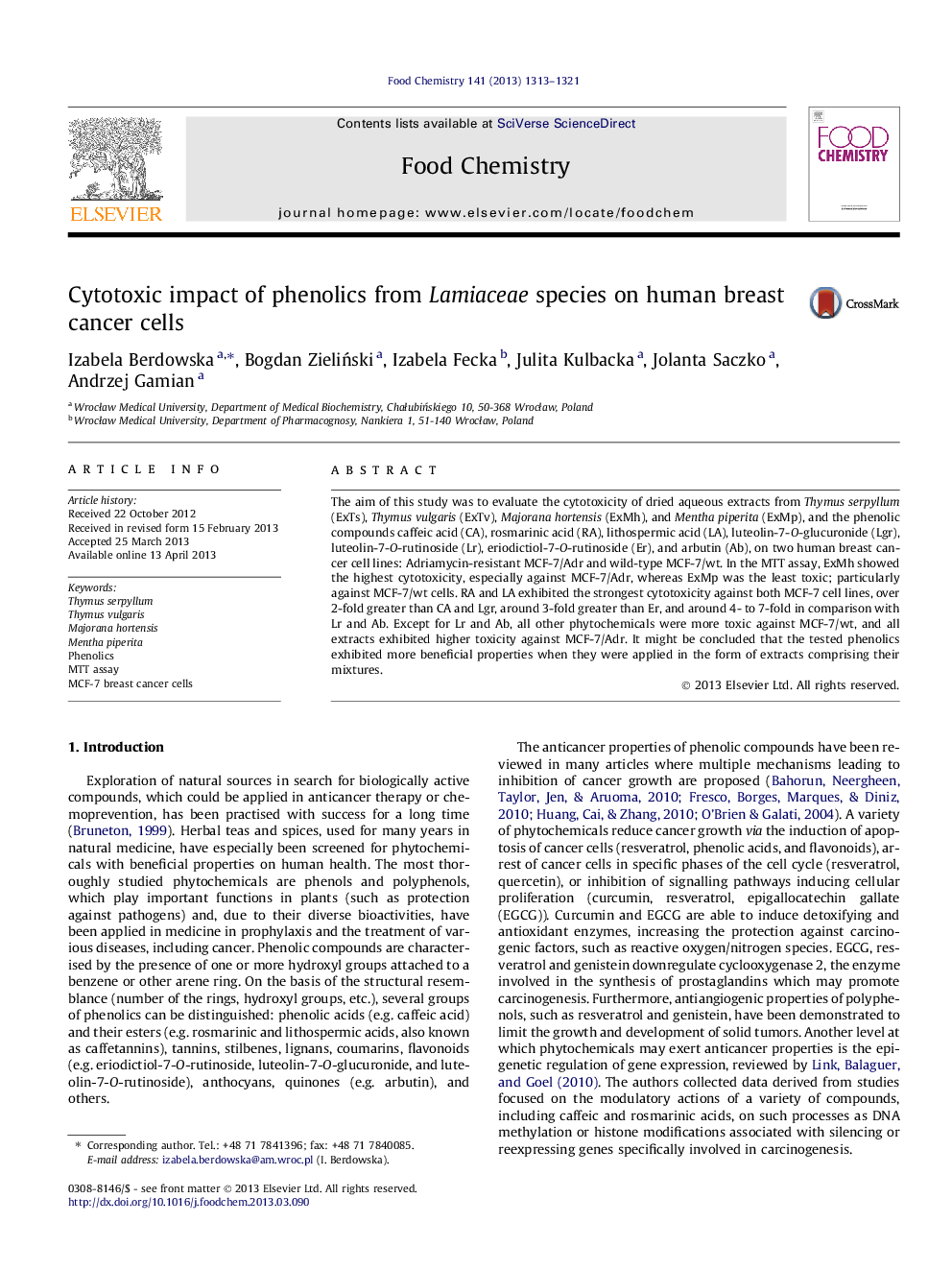| Article ID | Journal | Published Year | Pages | File Type |
|---|---|---|---|---|
| 1187158 | Food Chemistry | 2013 | 9 Pages |
•Effect of four dried aqueous extracts and seven phenolics on breast cancer cells was tested.•Majorana hortensis extract was the most, and Mentha piperita the least toxic.•Rosmarinic and lithospermic acids exhibited the strongest cytotoxicity.•Arbutin displayed the least toxicity against MCF-7 cells.•All extracts exhibited higher toxicity against adriamycin-resistant MCF-7 cells.
The aim of this study was to evaluate the cytotoxicity of dried aqueous extracts from Thymus serpyllum (ExTs), Thymus vulgaris (ExTv), Majorana hortensis (ExMh), and Mentha piperita (ExMp), and the phenolic compounds caffeic acid (CA), rosmarinic acid (RA), lithospermic acid (LA), luteolin-7-O-glucuronide (Lgr), luteolin-7-O-rutinoside (Lr), eriodictiol-7-O-rutinoside (Er), and arbutin (Ab), on two human breast cancer cell lines: Adriamycin-resistant MCF-7/Adr and wild-type MCF-7/wt. In the MTT assay, ExMh showed the highest cytotoxicity, especially against MCF-7/Adr, whereas ExMp was the least toxic; particularly against MCF-7/wt cells. RA and LA exhibited the strongest cytotoxicity against both MCF-7 cell lines, over 2-fold greater than CA and Lgr, around 3-fold greater than Er, and around 4- to 7-fold in comparison with Lr and Ab. Except for Lr and Ab, all other phytochemicals were more toxic against MCF-7/wt, and all extracts exhibited higher toxicity against MCF-7/Adr. It might be concluded that the tested phenolics exhibited more beneficial properties when they were applied in the form of extracts comprising their mixtures.
